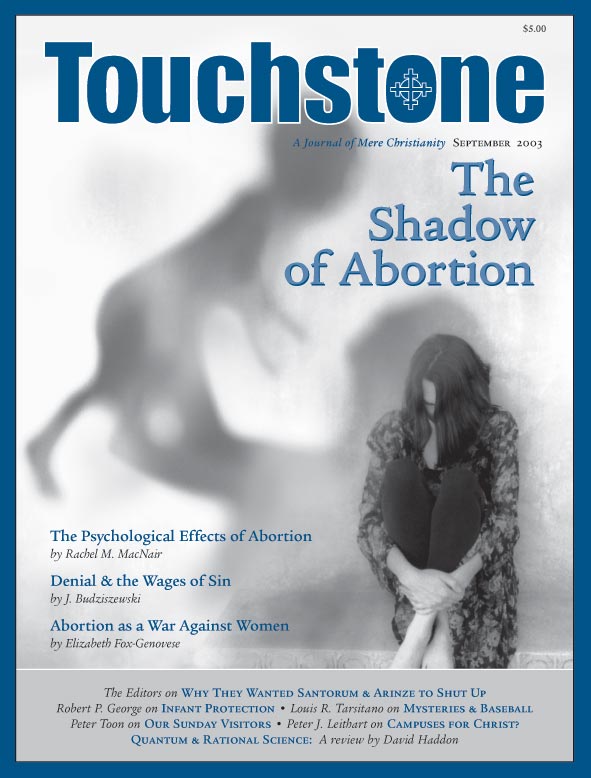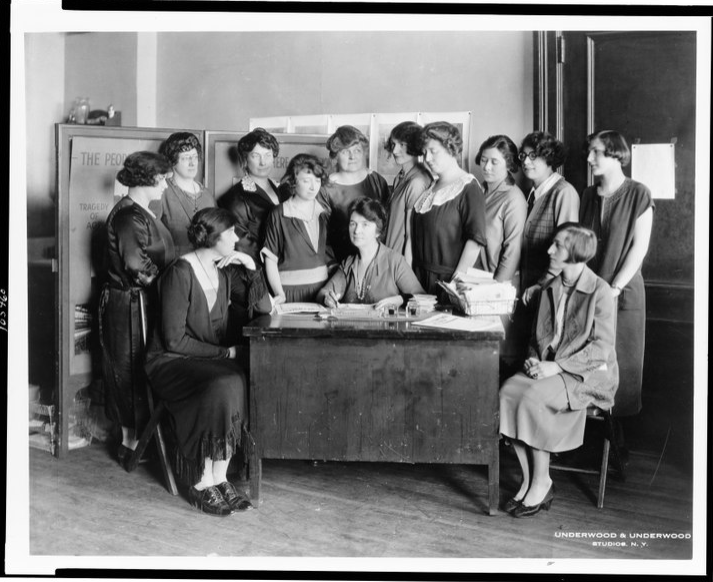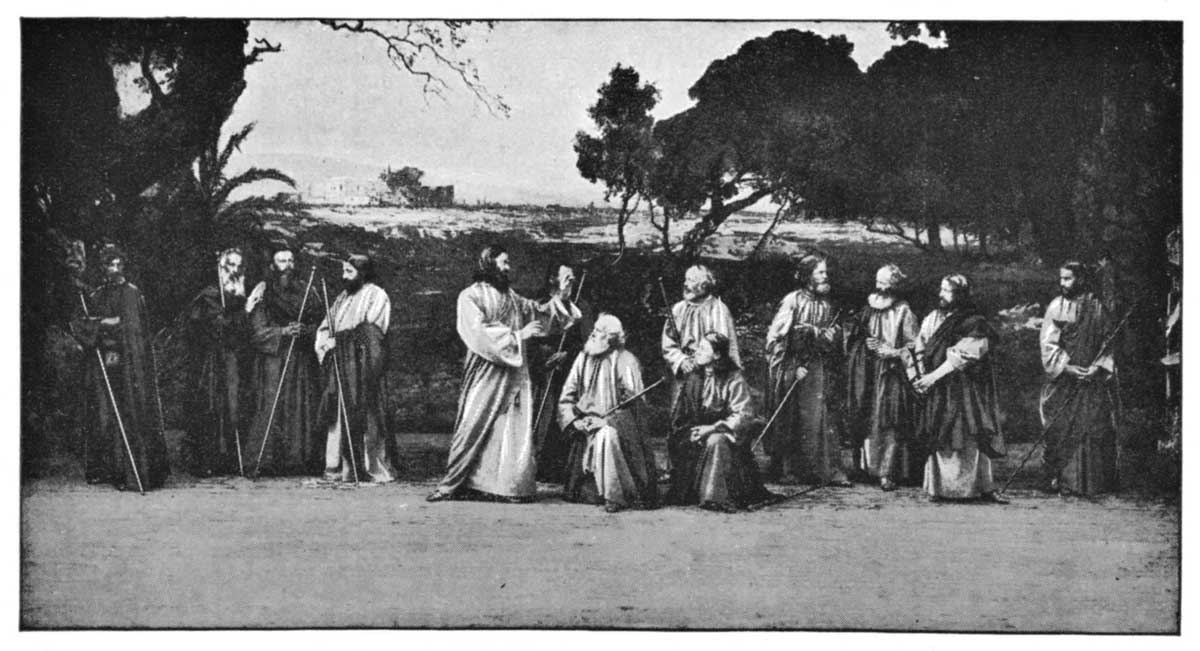Infants & Civil Rights
Robert P. George on the Born-Alive Infants Protection Act
Testimony of Robert P. George before the Subcommittee on the Constitution of the Committee on the Judiciary, United States House of Representatives, at the hearing on H.R. 4292, the Born-Alive Infants Protection Act, July 20, 2000.
My name is Robert P. George. I am McCormick Professor of Jurisprudence in the Department of Politics at Princeton University. At Princeton, I teach courses in constitutional interpretation, civil liberties, and philosophy of law. I am the author or editor of several books in the field of moral and political philosophy. I have published numerous articles and review essays in journals of law, philosophy, and political science. From 1993 to 1998, I served on the United States Commission on Civil Rights, and in that capacity I previously had the honor of testifying before this Committee.
My basic philosophy of civil rights is simple. It is the philosophy of the Declaration of Independence and, I believe, the Constitution of the United States. At its core is the self-evident principle that all human beings are created equal. Each member of the human family, as a unique and irreplaceable child of God, is endowed with inestimable and equal worth and dignity. We human beings may be unlike each other (or, if you will, “unequal”) in various respects—some are endowed with greater, some with lesser, intelligence, ability, physical strength and vigor, etc.—but none of these factors vitiates the fundamental sense in which we are truly “created equal” and entitled as a matter of right to “the equal protection of the laws.” Of course, any of us, by the wrongful exercise of his or her freedom, may forfeit liberty and certain other rights. But none of us exists at the pleasure of others or merely to serve their interests or fulfill their desires. There are no natural slaves or masters. No human being is the mere property of anyone else, or disposable at others’ whims.
Our most basic rights—including the right to life—are inherent and in no way contingent on a grant from the state or any other merely human source. As an inherent right, the right to life, which, properly specified, is a right not to be killed either as an end in itself or a means to any other end, comes into being for us when we come into being. It is not a privilege that we earn by achieving a certain level of consciousness or intelligence or other ability; it is not something that comes or goes with age, size, stage of development, or condition of disability or dependency; it is certainly not something that depends on whether someone else happens to “want” us or would prefer, all things considered, that we not exist.
If my philosophy of civil rights were uncontroversial, there would be no need for me and the other witnesses to be here today or for you to trouble yourselves with this hearing. Infanticide would be unthinkable. Even those who believe in abortion, as I do not, would draw the line at birth, if not before, on the ground that the physical separation of mother and child eliminates any concern that protecting the life of the child would violate the rights of her mother. But today the philosophy of civil rights I hold is far from undisputed. Infanticide is openly defended and even put forward as itself a right. Indeed, in the academy the intellectual groundwork is already in place to extend the right to abortion into the post-natal phase.
In an article entitled “Killing Babies Isn’t Always Wrong” (The Spectator, 16 September 1995, pp. 20–22), Professor Peter Singer, who has since become my colleague at Princeton, where he is DeCamp Professor of Bioethics in the University Center for Human Values, made the following proposal: “Perhaps, like the ancient Greeks, we should have a ceremony a month after birth, at which the infant is admitted to the community. Before that time, infants would not be recognized as having the same right to life as older people.”
Now, I understand that Professor Singer has since backed away from the proposed ceremony, but he has not altered his view that we should do away in law and ethics with the principle at the core of traditional concepts of human rights and equality, namely, that it is always wrong intentionally to kill innocent human beings; nor has he abandoned his claim that newborn human beings are not “persons” with a right to life that must be respected and protected by law. He continues to insist that human beings only become “persons,” and acquire a right to life, sometime well after birth. He denies that we are “created equal” and affirms a concept which, frankly, makes me shudder: that [there is] a class of human beings, including newborn infants, who are, in effect, nonpersons.
Is Professor Singer alone in these beliefs or in their public advocacy? Far from it. In fact, his position isn’t even new. Something very much like it was articulated in a mainstream philosophical journal as early as 1972 by philosopher Michael Tooley (“Abortion and Infanticide,” Philosophy and Public Affairs, vol. 2). Writing even before legal prohibitions of abortion were swept away by the Supreme Court’s decisions in Roe v. Wade and Doe v. Bolton, Professor Tooley bluntly declared that human fetuses and infants “do not have a right to life.” Only “persons” have a right to life, and fetuses and infants are not, he insisted, “persons.” Like Singer, Tooley expressed no doubt that infants (or, for that matter, fetuses) are human beings. He acknowledged, as does Singer, the plain fact that from the beginning of our lives—well before birth—we are distinct, whole, living members of the species Homo sapiens. But, he insisted, we do not become “persons”—we do not acquire the right to life—until well after we are born. According to Professor Tooley, a human being (or other organism) “possesses a serious right to life only if it possesses the concept of a self as a continuing subject of experiences and other mental states, and believes that it is itself such a continuing entity.” Infants do not qualify.
Here in Washington, D.C., American University philosophy professor Jeffrey Reiman, while expressly declining “to settle the issue about the moral status of infanticide,” also claims that infants are not “persons” with a right to life (Critical Moral Liberalism: Theory and Practice [Lanham, Maryland: Rowman and Littlefield, 1997], ch. 8, “Abortion and Infanticide”). While he offers some reasons why people might nevertheless think it generally wrong to kill newborn babies, he promoted the view that infants, unlike more mature human beings, do not “possess in their own right a property that makes it wrong to kill them.” He denies that infants are members of the community who share equal worth, dignity, and rights, and explicitly holds that “there will be permissible exceptions to the rule against killing infants that will not apply to the rule against killing adults and children.”
I could go on with examples. For now, though, suffice it to say that people who wish to destroy an “unwanted” child have today in the academy—here in the United States—influential scholars who are willing to say that the baby they seek to have killed is not, in fact, a “person” with an equal right to life. Some of these scholars promote the idea that killing an infant at the request of its parent—presumably a father as well as a mother in view of the fact that the physical separation of the child from the mother seems to confer on a father an equal right to command the death of the child—is morally acceptable and ought to be legally permitted.
Robert P. George is McCormick Professor of Jurisprudence and Director of the James Madison Program in American Ideals and Institutions at Princeton University (web.princeton.edu/sites/jmadison). His books include In Defense of Natural Law (Oxford University Press) and Conscience and Its Enemies (ISI Books). He has served as chairman of the U.S. Commission on International Religious Freedom. He is a senior editor of Touchstone.
subscription options
Order
Print/Online Subscription

Get six issues (one year) of Touchstone PLUS full online access including pdf downloads for only $39.95. That's only $3.34 per month!
Order
Online Only
Subscription

Get a one-year full-access subscription to the Touchstone online archives for only $19.95. That's only $1.66 per month!
bulk subscriptions
Order Touchstone subscriptions in bulk and save $10 per sub! Each subscription includes 6 issues of Touchstone plus full online access to touchstonemag.com—including archives, videos, and pdf downloads of recent issues for only $29.95 each! Great for churches or study groups.
Transactions will be processed on a secure server.
more on abortion from the online archives
more from the online archives
calling all readers
Please Donate
"There are magazines worth reading but few worth saving . . . Touchstone is just such a magazine."
—Alice von Hildebrand
"Here we do not concede one square millimeter of territory to falsehood, folly, contemporary sentimentality, or fashion. We speak the truth, and let God be our judge. . . . Touchstone is the one committedly Christian conservative journal."
—Anthony Esolen, Touchstone senior editor













